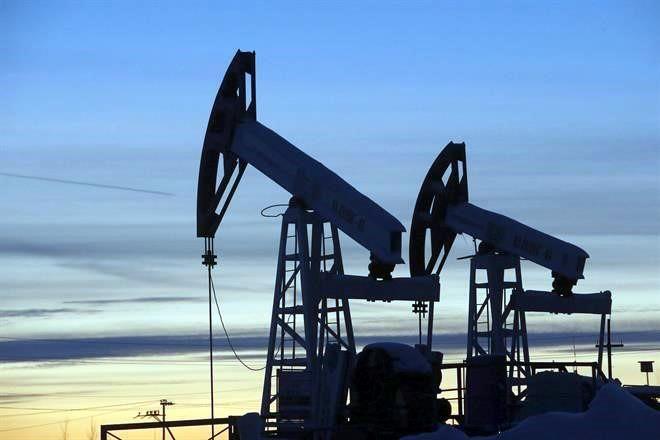Crude prices change in different directions

By Sara Israfilbayova
World oil prices do not show a single dynamics on August 3, the
growth of world production is hampered by the rise in price of this
type of raw materials.
Brent crude oil futures were at $73.39 per barrel, down 0.08
percent, U.S. West Texas Intermediate (WTI) crude futures were up
0.15percent, at $69.06 per barrel, according to RIA Novosti.
The dynamics of oil prices in the morning remains multidirectional after Thursday’s quotations jumped by almost 2 percent on news from Iran. On Thursday night it became known that Iran within 48 hours is preparing to launch large-scale naval exercises to demonstrate its ability to block the Strait of Hormuz.
In early July, deputy head of the Islamic Revolutionary Guard Corps (IRGC) Esmaeil Kowsari announced his readiness to close the Strait of Hormuz for oil transportation, if the export of Iranian oil will be restrained.
Investors remain focused on the level of oil production in the world and, in particular, in one of the largest countries in this indicator - the Russian Federation. Thus, the average daily oil production in Russia in July increased by 2.4 percent year-on-year to 11.215 million barrels a day.
Russia maintained its leading position in oil production in the world, producing an average of 10.973 million barrels of oil per day and ahead of the U.S. and Saudi Arabia, which also produced more than 10 million barrels of raw materials a day each.
Investors expect statistics on the dynamics of drilling rigs in the U.S. as a result of last week, the data will be published by the American oil and gas service company Baker Hughes, a GE Company (BHGE). According to the company, for the week of July 27, the total number of oil drilling rigs in the country increased by three, to 861 units.
OPEC and non-OPEC producers reached an agreement in December 2016 to curtail oil output jointly and ease a global glut after more than two years of low prices. OPEC agreed to slash the output by 1.2 million barrels per day from January 1.
Non-OPEC oil producers such as Azerbaijan, Bahrain, Brunei, Equatorial Guinea, Kazakhstan, Malaysia, Mexico, Oman, Russia, Sudan, and South Sudan agreed to reduce output by 558,000 barrels per day starting from January 1, 2017.
OPEC and its partners decided to extend its production cuts till the end of 2018 in Vienna on November 30, as the oil cartel and its allies step up their attempt to end a three-year supply glut that has savaged crude prices and the global energy industry.
---
Sara Israfilbayova is AzerNews’ staff journalist, follow her on Twitter: @Sara_999Is
Follow us on Twitter @AzerNewsAz
